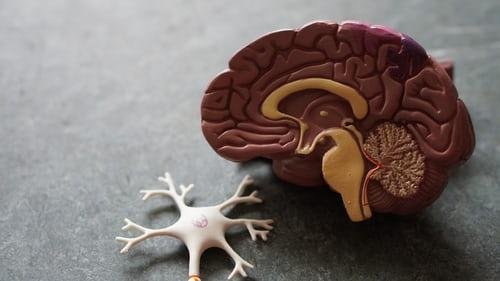You probably know there are many ways to prevent and fight neurological and mental disorders, but what about the natural way? Here are some natural ways to do so: Exercise, Vitamin B12, Magnesium, and Plants with antioxidant properties. Do these help? If so, try them out! What are your best options for fighting neurological and mental disorders? Do you have any other natural remedies that work well for you?
Exercise
Physical activity has long been known to improve mental health and cognitive function. Regular aerobic exercise has been shown to reduce anxiety, depression, and other negative moods. Exercise also increases self-esteem and reduces social withdrawal. It is especially important to exercise when dealing with mental disorders such as schizophrenia. Because these patients are already vulnerable to obesity, they may experience weight gain as a side effect of the antipsychotic medications they are prescribed.
Regular physical exercise releases brain-derived neurotrophic factor (BDNF), which stimulates the growth of new brain cells. It increases levels of the hippocampus, a critical area for memory and learning. People with depression and anxiety have lower levels of BDNF, but exercise increases its levels. Boosting levels of BDNF can improve brain function, increase mood stability, and boost general well-being.
Vitamin B12
One of the most important nutrients for the brain is Vitamin B12. Without sufficient amounts of vitamin B12 in your diet, your body is unable to create the nerve cell membranes that send signals throughout your body. Without enough of this vitamin, you may experience cognitive difficulties such as memory loss, impaired thinking, and confusion. Similarly, deficiency of this vitamin can lead to other diseases, such as dementia and Alzheimer’s.
Taking vitamin B12 can help treat elevated homocysteine levels in the blood, which may be linked to heart disease or blood vessel problems. High homocysteine levels are a known risk factor for certain types of stroke and heart disease, and an inadequate supply of vitamin B12 may cause a number of problems. Several recent guidelines do not recommend general screening for high homocysteine levels in the blood. But it is still advisable for pregnant women to take vitamin B12 supplements to avoid any neurological problems in the unborn baby.
Magnesium
The benefits of magnesium for various neurological conditions have long been studied. Studies have focused on epilepsy, depression, and migraine, but the role of magnesium in neurological disorders is unclear. Other research is ongoing, however. It is not clear whether magnesium can help people with Alzheimer’s disease, Parkinson’s disease, or Parkinson’s fibromyalgia. Magnesium as a natural way to combat neurological and mental disorders may help treat these conditions in both adults and children.
Recent studies suggest that magnesium can aid in the treatment of brain aging and memory loss. There are many health benefits of magnesium, including improved concentration, better memory, and reduced symptoms of depression and anxiety. The mineral is also important for a healthy brain. It is one of the most important minerals for healthy brain function, and a deficiency can lead to depression and memory problems.
Plants with antioxidant properties
Traditional medicinal systems have been used for centuries worldwide. Even though Western medicine has gained acceptance in therapy, traditional medicine continues to be widely practiced due to the demand for such treatments. Several medicinal plants are known to treat various neurological disorders. Many varieties of plants are known to combat mental and neurological disorders and provide preliminary information about their potential therapeutic value. In addition to relieving anxiety, these plants may help combat mental stress. This also explains why many users are buying the highest quality high yield seeds on the web.This study is an attempt to characterize the pharmacological role of some of the most commonly used traditional medicines.
Although animal studies have shown the importance of oxidative mechanisms in neurologic disorders, these studies are not based on human trials, due to publication bias. As a result, the results of human trials on the efficacy of antioxidant compounds in treating neurological and mental disorders have been mixed. Several antioxidant compounds have been tested in various types of neurologic and non neurologic disorders, including Alzheimer disease, Parkinson disease, and multi-infarction dementia.
Balanced diet
Studies have shown that a healthy diet can help reduce the risk of many illnesses, including neurological and mental disorders. In addition to reducing the risk of various diseases, a balanced diet also benefits the heart. The brain only represents 2% of an adult’s weight, but it consumes 20 percent of the body’s energy. It can suffer if it lacks sufficient energy. To provide it with the correct amount of energy, people should limit their salt, sugar, and alcohol consumption.
Side Notes
The cause of mental illness is not fully understood, but dietary changes can prevent or arrest the progression of the disorder. Several nutrients have been studied in clinical trials for their potential benefits, including omega-3 fatty acids, NAC, SAMe, zinc, magnesium, and folic acid. Other foods that are believed to affect the brain’s health include amino acids, plant-based antioxidants, and microbes.


